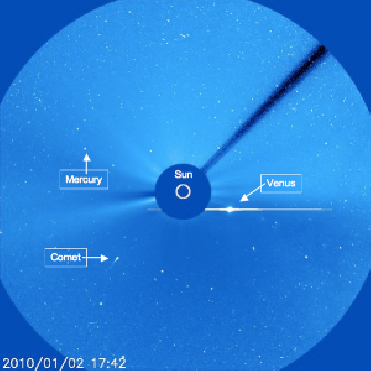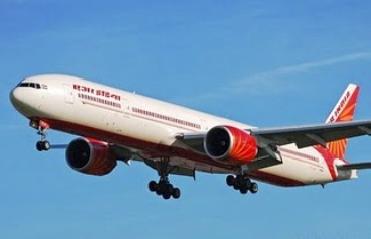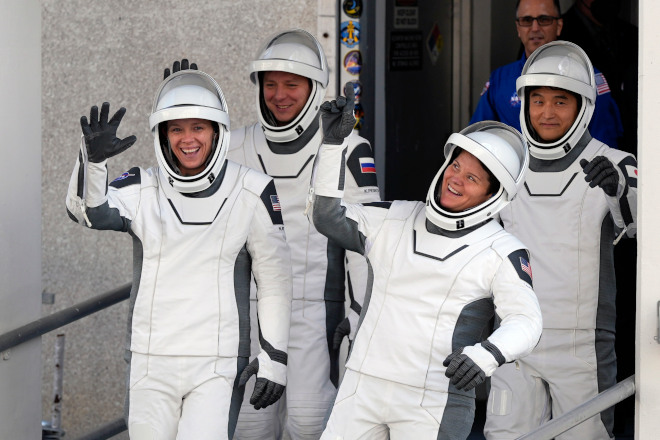
SOHO C3 image of new sungrazer, Mercury and Venus near the Sun. A SOHO/ESA/NASA photo.
NEW DELHI (PTI): An observatory has been able to take photographs of a sun grazer comet plunging into the Sun, a celestial event rarely captured on camera by astronomers.
Though the encounter was too close to the Sun for human eyes to see, the Solar and Heliospheric Observatory (SOHO) has monitored the action using an opaque disk to block the star's glare and even managed to click photos of this event, Science Popularisation Association of Communicators and Educators (SPACE) C B Devgun told PTI on Sunday.
SOHO is a spacecraft launched to study the Sun. It is a joint mission by NASA and the European Space Agency.
While small sungrazer comets get completely evaporated during such an encounter with the Sun, large ones can survive many perihelion passages, Devgun said.
A sungrazing comet is one that passes extremely close to the Sun at perihelion (the place where the planet is closest to the Sun) - sometimes within a few thousand kilometres of its surface.
The event took place on March 12 when a newly-discovered sun grazer comet, believed to be a part of Kreutz group of comets, plunged into the Sun and got completely destroyed.
About 83 per cent of the sungrazers observed by SOHO are members of the Kreutz group. The group is named after 19th century German astronomer, Heinrich Kreutz, who studied them in detail. Kreutz sungrazers are fragments from the breakup of a giant comet at least 2000 years ago.
Several of these fragments pass by the Sun and disintegrate every day. Most of them are too small to be visible but a big fragment - like this- attracts attention.
According to an estimate by astronomers, there are more than 1,600 such icy wanderers making periodic passes through the heart of the solar system.
In 1979, C/1979 Q1 (SOLWIND) was the first sungrazer to be spotted by US satellite P78-1, in coronographs taken on 30 and 31 Aug 1979.
 Previous Article
Previous Article Next Article
Next Article













The Indian Air Force, in its flight trials evaluation report submitted before the Defence Ministry l..
view articleAn insight into the Medium Multi-Role Combat Aircraft competition...
view articleSky enthusiasts can now spot the International Space Station (ISS) commanded by Indian-American astr..
view article